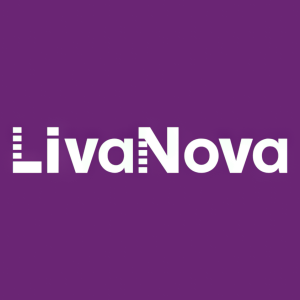RECOVER Clinical Study Shows Meaningful Benefits of LivaNova’s VNS Therapy System in Select Secondary Endpoints for Unipolar Patients with Treatment-Resistant Depression
Results published in two articles in Brain Stimulation
A total of 493 adults with at least four documented unsuccessful attempts with antidepressant treatments participated in the unipolar cohort of the RECOVER study. At baseline, unipolar patients in the study failed more than 13 antidepressant treatments (on average) – this included, for the majority, one or more interventional therapies (e.g., transcranial magnetic stimulation, electroconvulsive therapy, or esketamine). While the RECOVER study did not meet the primary endpoint due to a strong and unforeseen response in the sham group, the active treatment arm demonstrated statistically significant and clinically meaningful improvement from the treatment arm’s baseline. Further, the RECOVER study demonstrated statistically significant and clinically meaningful benefits in select secondary endpoints for this cohort. Based upon these findings and the positive effects for those who received VNS Therapy, the Company conducted additional in-depth data analyses and plans to submit three additional critical manuscripts to report on the outcomes.
“Participants in the trial had severe, refractory depression that could not be treated effectively with other FDA-approved treatments, and most have had large portions of their lives profoundly negatively impacted by depression,” said Charles Conway, MD, director of the Washington University Resistant Mood Disorders Center at Washington University School of Medicine in
The first article, “Vagus Nerve Stimulation in Treatment-Resistant Depression: A One-Year, Randomized, Sham-Controlled Trial,”1 outlines the safety and effectiveness of adjunctive VNS Therapy in treating patients with unipolar TRD. The primary endpoint measured the difference in the percentage of time in antidepressant response between active VNS Therapy and sham VNS Therapy, with response defined as at least a
Analyses of secondary endpoints revealed antidepressant benefits significantly favoring active VNS Therapy as opposed to sham VNS Therapy as measured by ratings from on-site clinicians (Clinical Global Impression-Improvement, or CGI-I), patients themselves (Quick Inventory of Depressive Symptomology–Self Report, or QIDS-SR), and offsite masked raters (Quick Inventory of Depressive Symptomology–Clinical, or QIDS-C).
Results included:
- Participants with active VNS Therapy had significantly more percentage of time in response with CGI-I (P=0.004) and QIDS-SR (P=0.049) compared with sham VNS Therapy.
-
For percentage of time in partial response, active VNS Therapy showed significant benefit with QIDS-C (P=0.006) and CGI-I (P<0.001) compared with sham VNS Therapy. Partial response is defined as improvement of ≥
30% from baseline for QIDS-C or a score of ≤3 for CGI-I. - No differences between treatment groups were observed in suicidal ideation and intent as measured by the S-STS2 items 6 and 8 (P=0.239).
“The composite of the mood findings, especially in the partial response rates on multiple ratings scales, along with the low rate of adverse events, support that this device demonstrated safe antidepressant efficacy for these patients,” said
The second article, “Effects of Vagus Nerve Stimulation on Daily Function and Quality of Life in Markedly Treatment-Resistant Major Depression: Findings from a One-Year, Randomized, Sham-Controlled Trial,”3 assesses VNS Therapy’s ability to improve quality of life (QoL) and daily function in patients with unipolar TRD. The results of this analysis demonstrated that adjunctive VNS Therapy provided greater improvements in QoL and daily function in patients with unipolar TRD when compared with sham VNS Therapy.
Results included:
- The active VNS Therapy group showed greater improvements over the sham control group as measured by the mean change in scores from baseline in the Mini-Q-LES-Q4 (P=0.050) and WPAI5 item 6 (health condition’s effect on regular activities; P=0.050) used as continuous variables.
- Time spent in a state of clinically meaningful benefit was significantly greater with active VNS Therapy compared to sham VNS Therapy, using the Q-LES-Q6 (P=0.029), Mini-Q-LES-Q (P=0.011) and WPAI item 6 (P=0.039).
- No differences between treatment groups were observed in the mean change in score from baseline with the WHODAS7 2.0 (P=0.304) and the EQ-5D8 visual analog scale (P=0.125).
“Adjunctive VNS Therapy improves quality of life and psychosocial function in patients with major depression who have not benefited from multiple antidepressant treatments,” said A. John Rush, MD, Professor Emeritus at Duke-National University of Singapore Medical School and lead author on this article. “For these patients who are profoundly impaired, largely unemployed, and markedly treatment-resistant, depressive symptoms alone are an incomplete gauge of the clinical impact of treatments. Symptoms, function, and quality of life taken together present a more complete picture of treatment effectiveness.”
These two articles published in Brain Stimulation are the first in a series that will detail the RECOVER unipolar cohort data. Three subsequent, supportive manuscripts will feature outcomes from in-depth data analyses on select secondary endpoints. The totality of data presented in these five complementary articles will serve as the basis for LivaNova’s formal request to the
“Patients in the RECOVER study are some of the most critically ill among those with treatment-resistant depression and they need more treatment options when existing therapies fail,” said Vladimir Makatsaria, Chief Executive Officer of LivaNova. “The data from the RECOVER study and predecessor studies has shown that VNS Therapy is a safe and effective treatment option for these patients, providing hope for patients and families in similar situations who have few viable options. We look forward to sharing more of the important outcomes from the unipolar cohort with the intent to offer VNS Therapy as an important adjunctive treatment for these patients.”
RECOVER launched in 2019 as part of a Coverage with Evidence Development framework per the CMS National Coverage Determination process. For the unipolar cohort of RECOVER, enrollment was completed in March 2023, and the 12-month follow-up for those patients was completed in March 2024. No new safety issues were identified in the study.
About RECOVER
LivaNova’s VNS Therapy™ System has been approved for the treatment of depression since earning CE Mark in 2001 and 510(k) from the
The largest randomized clinical study of its kind, RECOVER is examining up to 1,000 patients ages 18 or older who have unipolar or bipolar depression that is difficult to treat. The double-blind, randomized controlled study is assessing how VNS Therapy can offer patients relief from their depressive symptoms and improve quality of life. It is being carried out at up to 100 leading hospitals and medical centers across
About VNS Therapy for Depression
The VNS Therapy™ System, Symmetry™, is
References
- Conway CR, et al. Vagus nerve stimulation in treatment-resistant depression: A one-year, randomized, sham-controlled trial. Brain Stimulation. Dec. 18, 2024. DOI: 10.1016/j.brs.2024.12.1191.
- The Sheehan Suicidality Tracking Scale (S-STS) is a clinician-administered rating scale that tracks treatment-emergent suicidal ideation and behaviors.
- Rush AJ, et al. Effects of vagus nerve stimulation on daily function and quality of life in markedly treatment-resistant major depression: Findings from a one-year, randomized, sham-controlled trial. Brain Stimulation. Dec. 18, 2024. DOI: 10.1016/j.brs.2024.12.1187.
- Mini-Q-LES-Q (Quality of Life Enjoyment and Satisfaction Questionnaire – Short Form) is a quality-of-life measure from a self-report assessing the patient’s degree of enjoyment and satisfaction across seven domains as a subset of the Q-LES-Q.
- WPAI item 6 is a function measure from the Work Productivity and Activity Impairment (WPAI) Questionnaire.
- Q-LES-Q is a quality-of-life measure from a self-report assessing the patient’s degree of enjoyment and satisfaction experienced over the previous seven days across 14 domains.
- WHODAS (World Health Organization Disability Assessment Schedule) assesses the patient’s ability to perform activities in the previous month in six domains.
- The EuroQoL Five-Dimension Questionnaire (EQ-5D) is a generic QoL measure that assesses mobility, self-care, usual activities, pain/discomfort, and anxiety/depression.
About LivaNova
LivaNova PLC is a global medical technology company built on nearly five decades of experience and a relentless commitment to provide hope for patients and their families through medical technologies, delivering life-changing solutions in select neurological and cardiac conditions. Headquartered in
Safe Harbor Statement
This news release contains “forward-looking statements” concerning the Company’s goals, beliefs, expectations, strategies, objectives, plans, underlying assumptions, and other statements that are not necessarily based on historical facts. These statements include, but are not limited to, statements regarding the RECOVER study and the VNS Therapy™ System, Symmetry™. Actual events may differ materially from those indicated in our forward-looking statements as a result of various factors, including those factors set forth in Item 1A of the Company’s most recent Annual Report on Form 10-K, as supplemented by any risk factors contained in Quarterly Reports on Form 10-Q and Current Reports on Form 8-K. LivaNova undertakes no obligation to update the information contained in this press release to reflect subsequently occurring events or circumstances.
View source version on businesswire.com: https://www.businesswire.com/news/home/20241217812430/en/
LivaNova Investor Relations and Media Contacts
+1 281-895-2382
Briana Gotlin
VP, Investor Relations
InvestorRelations@livanova.com
Deanna Wilke
VP, Corporate Communications
Corporate.Communications@livanova.com
Source: LivaNova PLC







